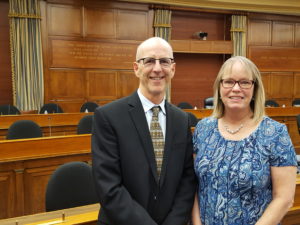The Center for Biotechnology is offering one-on-one SBIR/STTR proposal development counseling and iterative grant writing services to companies – application for next cohort is June 5th!
Companies that have completed our intensive 2-day workshop (or similar program) and/or have previously submitted an unsuccessful SBIR/STTR proposal in the past are eligible to apply. Services provided under this program are awarded through a competitive application process and include a weekly “best practices” proposal development webinar followed by iterative review of section drafts to guide stepwise development of the proposal from start to finish.
Companies selected for this follow-on counseling will be required to contribute $250 and will receive up to 10 hours of iterative proposal development services valued at $2000. These services will be subsidized by the Center for Biotechnology through the Downstate New York SBIR Assistance Program.
Interested companies should apply online no later than June 5, 2020. The application can be found here: https://forms.gle/5m9kAN8nUnzEyXyi9.
Contact Kate Hutchinson kate.hutchinson@stonybrook.edu with questions.
